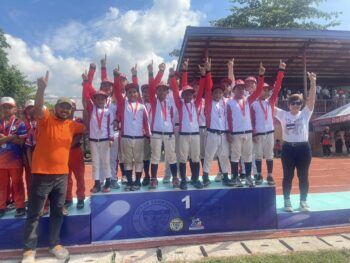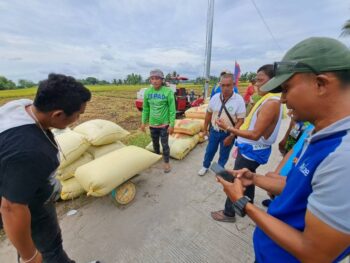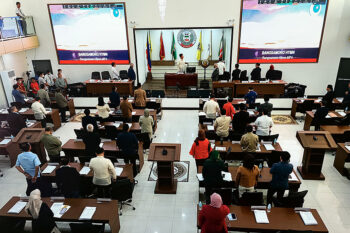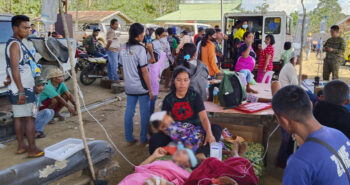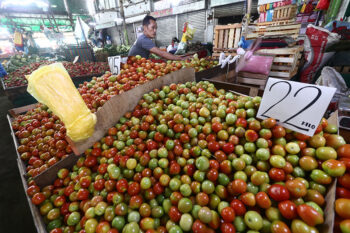KIDAPAWAN CITY (MindaNews / 1 July) – The powerful and eloquent speech of Justice Marvic Leonen during the oath-taking ceremonies for new lawyers overwhelmed my emotions in mixed rejuvenation and frustration. The challenge to the new lawyers as well as to the men and women in the legal profession to serve the poor, oppressed and marginalized gave a sense of affirmation to what I believe the journey I need to go through. However, the realities of legal practice on the ground are in stark contrast from the ideals as written in the law books and what Justice Leonen stressed.
People’s lawyering, some call it public interest or alternative lawyering, is undeniably a daunting task. When I decided to quit my 10-year development and humanitarian work sometime in 2012, I only imagined of a barrio lawyer in a stress-free environment away from the urban jungle of Metro Manila. I intended to mix the practice of legal profession with farming – the other line of work I loved most, which may come naturally for people like me who grew up and lived as a son of toiling peasants. A prominent lawyer friend of my late uncle in Kidapawan introduced me to the rigors of private practice. This opened the opportunity for me to deal with legal matters on land conflict and practice of criminal procedures. But few years from the practice, I can feel that something is still missing. I was clamoring for more other than court appearances and writing pleadings.
My exposure for a number of years in development work naturally introduced me to various advocacy work of the church and civil society organizations in the Province of Cotabato, particularly in the areas of peace, justice, environment and concerns of indigenous peoples (IP), Moro and peasants. It is not surprising also that my clients, mostly on pro bono services, come from these basic sectors of our society.
The late Joel Virador, the famous member of the Batasan 5, who sought protective custody from the House of Representatives and eluded attempts of arrest for rebellion during the Macapagal-Arroyo administration in 2006, introduced me to Union of People’s Lawyers in Mindanao (UPLM). I was eventually admitted as UPLM member during its 5th Mindanao Congress in Davao City where the former Mayor and now President Rodrigo Roa Duterte graced the occasion, and in front of Ka Satur Ocampo, Secretary Silvestre “Bebot” Bello, Bayan Muna Congressman Kaloi Zarate and many others, narrated his plans if he will run and become elected President of the Philippines. He said he will declare a “revolution” to bring radical change for the Filipino people. His kind of “revolution” was not then clear to me. But what I really heard was, he needs to do it because wealthy businessmen in the country will not just simply share their wealth to the poor, and it takes “revolution” to make it happen. Well, with the narratives and controversial issues on war on drugs, West Philippine Sea and violation of human rights of the current administration, it’s clear to me now what he meant of his “revolution”.
My baptism of fire in public interest lawyering was representing a former NPA rebel who was accused of the crime of rebellion. He was wounded during the military raid in Kisante, Makilala sometime in 2005. Fortunately for him, the court was constrained to dismiss his case because the prosecution failed to complete the presentation of its evidence for lack of interest of its military witnesses. This always happened in many cases, anyway.
Surprisingly upon reading the stenographic notes, the case involved my good friend and fraternity brother, the late George Vigo. Good that he had his news reporter identification card; he was spared from the case. But barely about a year after the raid, he, together with his wife and my cousin, Maricel Alave-Vigo, were mercilessly murdered by assassins in the late afternoon of June 19, 2006 while traveling home on a motorcycle. The case belongs to the countless unsolved and mysterious crimes in the country. It’s another story, though.
My resolve in people’s lawyering was greatly put to test when policemen herded and charged about a hundred farmers of direct assault, including elderly men and women, as a result of the violent dispersal of thousands of protesters in the morning of April 1, 2016 at the Cotabato-Davao national highway. The protesters, mostly poor farmers from Kidapawan City and municipalities of Arakan, Magpet and Antipas, were demanding rice distribution from government authorities after a long dry spell affecting their farms. The incident had caused the death of one farmer-protester and one bystander from bullet wounds and serious injuries to many farmers as well as members of the police dispersal team.
Except for the two medical workers from Arakan Parish, who were asked to respond and give first aid to the wounded but arrived only after the dispersal incident, my poor farmer-clients said that they joined the protest-rally because they were told that there will be rice distribution. The men and women were brought to the gym and women center, respectively, as part of what the police called “a rescue operation”. They were also promised medical assistance and food when the police “rescued” them at the houses and construction bunkers at the vicinity of the national highway. However, despite their plea and explanation that they did not join the barricade for the reason that they were not part of the protesters (medical workers) or due to their age and fragile health conditions (elderly men and women), they were still charged of direct assault. The case was filed on April 3 or 4, 2016, or about 2 or 3 days after the incident.
Nonetheless, hearings of the cases are still pending before the Municipal Trial Court in Cities (MTCC) of Kidapawan City as of this writing.
From then on, I continue to receive a deluge of cases involving farmers, indigenous peoples, and church workers, who have been charged of ordinary crimes, mostly non-bailable offenses. Understanding, however, the context the work and involvement of these community leaders, they are clearly victims of vilifications and perceived supporters or sympathizers of communist rebels. Many if not all are trumped up charges.
Frankly, taking this line of legal practice is not only daunting but risky, thankless and financially unrewarding. When I shared these principles to one of my local colleagues, I was shocked of his response, “You cannot eat your principles”. Well, he may have forgotten his oath as a lawyer after many years of receiving financial rewards and accolades. His is the same dangerous view swamping the legal profession that Justice Leonen abhors. Appallingly, it is still in the mindset of many lawyers who are already in their retirement or twilight years. It is a clear manifestation of failure in the legal ethics which many in the legal profession consider as a mere bar subject and insignificant in actual practice.
Like in the urban areas, many forms of injustices are also taking place in the barrios – in the communities where the struggling peasants, farmers and indigenous peoples dwell. In fact, they are the usual victims of armed conflict between government forces and rebels which often led to economic displacement, physical harm and trumped up crimes.
Lawyers who are willing to embrace the principles of truth, peace, social justice and human rights are much needed here. Will you take the challenge?
[MindaViews is the opinion section of MindaNews. Upper Right Hand is a revolving column of the Union of People’s Lawyers in Mindanao (UPLM). Atty. Dionesio T. Alave Jr. is the Chair of People’s Peace Network, an alliance of local church and civil society organizations in Kidapawan City which is actively involved in peacebuilding and promotion of justice and human rights. He has been a rural development worker since 1994 and human rights lawyer upon admission to the bar in 2012.]


